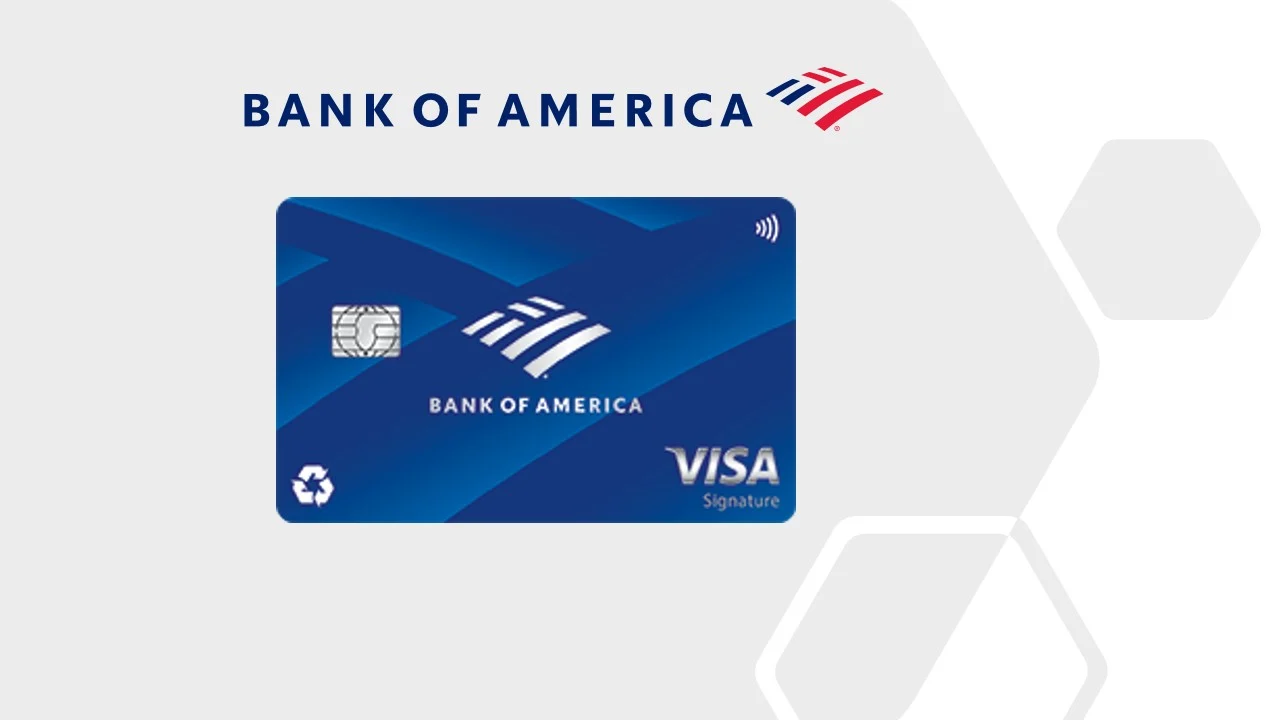Tips for efficiently accumulating and using credit card reward points

Understanding Credit Card Reward Points
Credit card reward points can be a valuable asset, but they often remain unused or underutilized. With a few strategic approaches, you can maximize these rewards, turning everyday spending into exciting benefits. Here’s how to get started.
Why Accumulate Reward Points?
Accumulating reward points offers numerous advantages, making your spending more purposeful and enjoyable. These benefits can be grouped into three key categories:
- Travel benefits: Many credit card companies partner with airlines, hotels, and rental car agencies, allowing you to use your points to cover travel costs. For example, a family trip to Disneyland can be made more affordable by redeeming points for flights or hotel stays, potentially saving you hundreds of dollars.
- Cashback options: If you prefer tangible savings, many cards allow you to convert your points into statement credits or direct payments. For instance, if you spend $1,000 a month and receive 1% cash back, you could earn $120 annually simply by using your card for everyday purchases like groceries, gas, and dining out.
- Exclusive experiences: Some credit cards offer access to unique events—think VIP concert tickets or exclusive dining experiences that you might not find elsewhere. Imagine attending a private concert with your favorite artist as a reward for your consistent spending.
Understanding how to effectively collect and redeem these points is crucial. With the right strategy, you can turn your routine purchases into invaluable rewards. Here are some tips for efficiently accumulating and using credit card reward points:
- Choose the right card: Look for a credit card that aligns with your spending habits. If you travel frequently, select a card that offers bonus points for airline purchases. For everyday expenditures, find one that rewards grocery shopping or gas purchases betters.
- Monitor bonus categories: Many credit cards offer rotating bonus categories that provide extra points on certain purchases, such as dining or online shopping. Keeping track of these categories can lead to significant point accumulation, for example, earning 5x points on a dinner out during the month!
- Be mindful of expiration: Keep an eye on when points may expire, as many cards will have a time limit unless you make a qualifying purchase within a certain period. This way, you can utilize your points before they are lost.
- Combine points if possible: Some programs allow you to transfer points between cards within the same rewards program, maximizing your potential use.
By employing these strategies and actively engaging with your credit card rewards program, you can make the most of your reward points. This not only enhances your financial savvy but also transforms everyday spending into rewarding experiences, ensuring that you gain the most value for every dollar spent.
DISCOVER MORE: Click here to find out how to apply
Maximizing Your Credit Card Reward Points
Once you’ve chosen the right credit card to suit your needs, the next step is to focus on maximizing your reward points. There are several practical strategies you can adopt to ensure you’re accumulating points efficiently and using them wisely. Here are key practices that can help enhance your credit card reward experience:
Create a Budget for Credit Card Spending
Understanding how you spend your money is essential in optimizing your reward points. Start by creating a budget that incorporates your regular expenses, such as groceries, gas, dining, and entertainment. By mapping out these spending categories, you can make informed choices about which purchases to make with your credit card. For instance, if you usually spend $400 on groceries each month, using a card that offers 3x points on grocery purchases would allow you to accumulate an additional 1,200 points compared to using a card with no rewards.
Leverage Sign-Up Bonuses
Many credit cards offer lucrative sign-up bonuses that can significantly boost your point accumulation early in your account. These bonuses often require you to spend a specific amount within the first few months of account opening, typically ranging from $500 to $4,000. To maximize this benefit, plan your larger purchases or upcoming expenses around this window. For example, if you know you need a new appliance or are planning a big family outing, timing those purchases with your new card can help you reach the spending threshold while earning valuable bonus points.
Utilize Online Shopping Portals
Many credit card issuers have partnerships with popular retailers and online shopping portals, allowing you to earn additional points for online purchases. Take the time to visit your card issuer’s rewards website before shopping online. You might discover that you can earn an extra 5-10% back in points simply by using their designated portal. This strategy not only helps you accumulate points faster but also offers an opportunity to discover deals and discounts that you might not find elsewhere.
Participate in Referral Programs
Some credit card issuers offer referral bonuses when you recommend their card to others. If a friend or family member applies for the card based on your recommendation and gets approved, you can earn a substantial amount of bonus points, often around 10,000 to 20,000 points. Consider sharing your positive experiences on social media, or talking to friends, but be sure to comply with the issuer’s guidelines regarding referrals.
Stack Rewards with Partnerships
Many credit cards have partnerships with specific brands, hotels, and airlines, allowing you to stack your rewards for even greater value. For example, if you frequently fly United Airlines and have a credit card that offers bonus points for airline purchases, consider joining the airline’s frequent flyer program. By doing so, you can earn both credit card points and miles simultaneously, ultimately accelerating your rewards accumulation.
By implementing these strategies and keeping a proactive approach to your credit card spending, you’ll not only maximize your reward points but also enhance your overall financial strategy. Each point earned brings you one step closer to unlocking exciting rewards, so it’s worth taking the time to manage your credit card habits effectively.
DISCOVER MORE: Click here to learn about the latest trends
Using Credit Card Reward Points Wisely
While accumulating credit card reward points is important, knowing how to effectively use them can truly make a difference in maximizing their value. Here are some strategies to ensure that you make the most of your hard-earned points:
Understand Redemption Options
Credit card rewards programs often come with a variety of redemption options, including cash back, gift cards, travel credits, and merchandise. It’s essential to understand these choices to determine which will offer you the best value. For instance, redeeming points for travel can often provide a greater value than cash back. A point might be worth 1 cent when used for cash rewards but may be worth 2 cents or more when applied toward a flight or hotel room. Always assess the value of each redemption option to maximize your rewards.
Be Mindful of Expiration Dates
Many credit card reward points have expiration dates, particularly if your account becomes inactive. To prevent losing points, monitor your rewards balance and be conscious of when points are set to expire. Engaging in periodic transactions, like making smaller purchases with your card, can help keep your account active and your points intact. Additionally, if a particular rewards program is nearing expiration, consider using those points for a modest but meaningful purchase to avoid waste.
Combine Points with Loyalty Program Partnerships
If your credit card issuer partners with airlines or hotel chains, you may have the option to transfer your credit card points to those loyalty programs. This transfer can often provide greater value for your points. For example, a travel rewards card may allow you to transfer points to an airline frequent flyer program at a favorable rate, granting you access to exclusive flights or upgrades that are not available with cash purchases. Always check the transfer ratios and potential bonuses for these partnerships to ensure you are getting the best deal.
Monitor Bonus Redemption Offers
Stay alert for limited-time offers or promotions from your credit card issuer that allow you to redeem your points for enhanced value. These bonus redemption opportunities can offer discounts on travel bookings, increased rewards for certain purchases, or even special experiences. For example, you may encounter a promotion offering 25% more points when redeemed for certain hotels during a specific period. Signing up for your card issuer’s newsletters or regularly checking their rewards website can keep you informed about such valuable opportunities.
Know Your Spending Habits to Guide Redemption
Understanding where and how you spend your money can also guide you in redeeming your points effectively. For instance, if you know you primarily use your points for travel, plan ahead by saving your points for a significant trip or experience. On the other hand, if your purchases heavily include everyday expenses, redeeming for cash back may be the better strategy in those slower periods. Tailoring your redemption strategy around your personal spending habits ensures that your points are used in a way that brings you the most satisfaction and convenience.
By focusing on how you redeem your credit card points as much as how you earn them, you can enhance the value of your rewards and ensure that you’re benefiting fully from your credit card products. Remember, every point is an opportunity, and with careful planning, you can turn those points into memorable experiences or valuable savings.
DISCOVER MORE: Click here to learn how to apply for the Bank of America Travel Rewards Credit Card</
Maximizing Your Credit Card Reward Points
In conclusion, accumulating and using credit card reward points can be a rewarding experience if approached wisely. By implementing the strategies outlined in this article, you can enhance both the earning and redemption processes, ultimately making the most out of your credit card rewards. Remember, the key to maximizing the value of your points lies in understanding the various redemption options available, being aware of expiration dates, and leveraging any partnerships your credit card issuer offers.
It’s essential to consider the different ways to earn points. For instance, using your credit card for everyday purchases such as groceries, gas, and dining can accumulate points rapidly. Some cards even offer bonus points during specific promotional periods; for example, if you have a card that provides 3x points on dining, using it to pay for meals out can significantly boost your earnings. Regularly reviewing your spending habits can help you identify categories where you might benefit more from certain rewards programs.
Keep Track of Redemption Options
Moreover, by staying attentive to bonus redemption offers and aligning your redemption strategy with your personal spending habits, you can turn your points into meaningful rewards that suit your lifestyle. For example, if you collect frequent flyer miles, you could use your points to book flights or upgrade your seat on your next trip, turning your accumulated points into a deluxe travel experience. Alternatively, you might choose to redeem points for gift cards or merchandise that you would have purchased anyway, effectively stretching your budget further.
Regularly Evaluate Your Rewards Program
As you continue to gather points, consider every decision you make as a step toward improving your overall benefits. Make it a habit to review your rewards program periodically, ensuring that you’re maximizing the opportunities available to you. Check if your credit card offers special promotions, like earning double points during holiday seasons or on specific brands. With a thoughtful approach, your credit card reward points can transform from simple perks into truly enriching experiences, making your everyday spending work harder for you.


